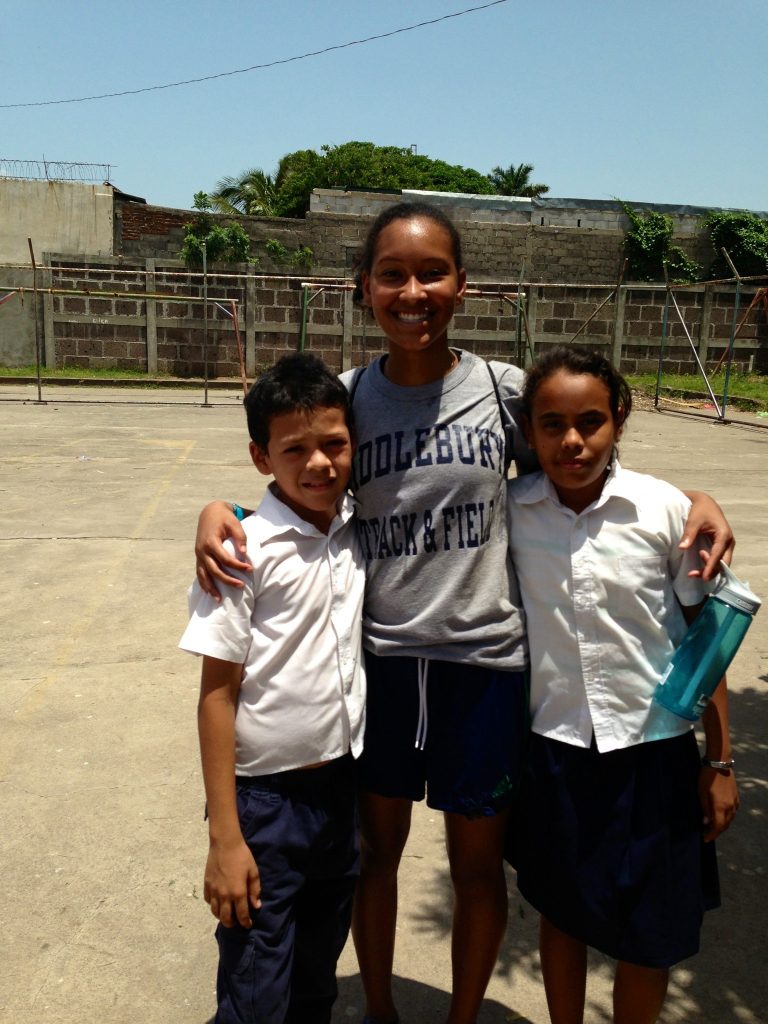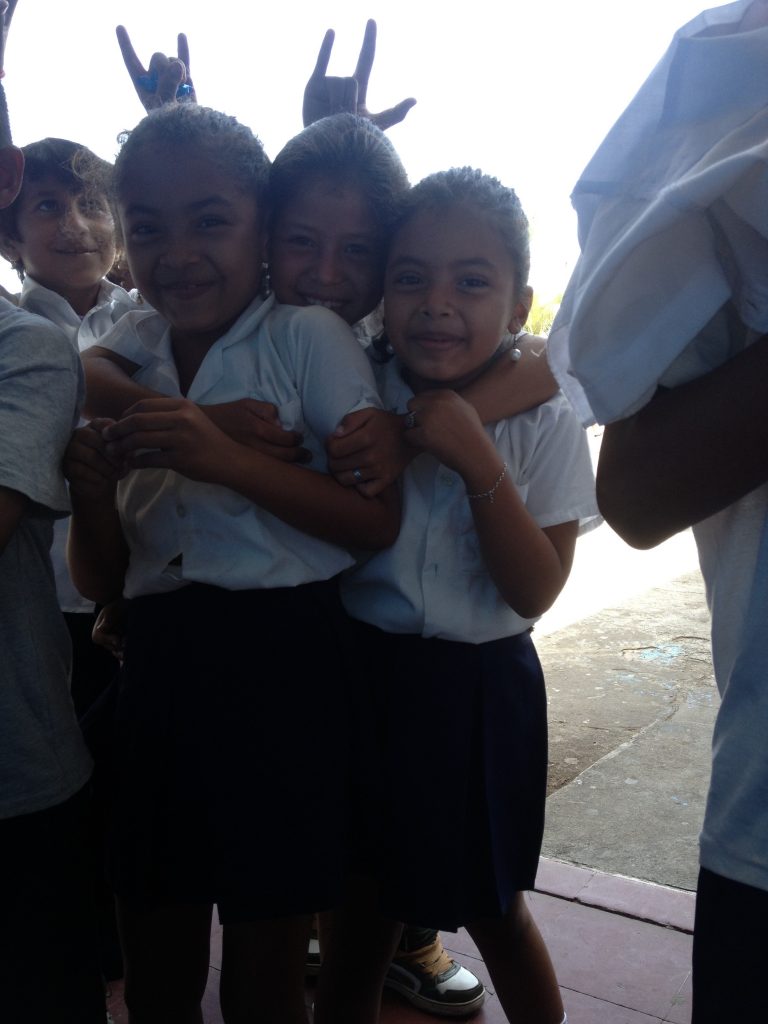Growing up, I can’t recall one time in which I was ever told there was something I couldn’t do or achieve.  As one of six children, with three sisters and two brothers, my immediate family has always been female heavy. My larger family seems to follow the same pattern, with strong, accomplished women far outnumbering men. Having grown up in such a matriarchal family, it was hard for me to imagine an environment in which when I expressed interest in soccer I would have been told that I had no place in the sport, or if I wanted to go to school I was told my brother’s educations took precedence because they’d be able to “become breadwinners,” and “further the family name.” I took these opportunities and this support network for granted. I walked out of the house every day, whether it was for school, soccer, or one of many other opportunities, knowing that if I wanted to achieve something that day, I could, regardless of being a woman.
As one of six children, with three sisters and two brothers, my immediate family has always been female heavy. My larger family seems to follow the same pattern, with strong, accomplished women far outnumbering men. Having grown up in such a matriarchal family, it was hard for me to imagine an environment in which when I expressed interest in soccer I would have been told that I had no place in the sport, or if I wanted to go to school I was told my brother’s educations took precedence because they’d be able to “become breadwinners,” and “further the family name.” I took these opportunities and this support network for granted. I walked out of the house every day, whether it was for school, soccer, or one of many other opportunities, knowing that if I wanted to achieve something that day, I could, regardless of being a woman.
Prior to my sophomore year of high school, my varsity soccer coach approached the team with an opportunity to complete our mandatory 60 hours of community service while also playing soccer. Being the complete soccer addict I am, I jumped at the opportunity. After extensive fundraising, filling out an application, and undergoing an interview process, I would be traveling down to Granada, Nicaragua for part of the summer to volunteer as a coach for under-privileged and under-served girls between the ages of five and seventeen with the organization Soccer Without Borders.
Soccer Without Borders is an American based organization which seeks to empower and provide for under-served communities across the world through soccer, educational support and life skills workshops. The targeted recipients of SWB’s services are mainly girls, and as of right now the organization boasts programs in Granada, Nicaragua and Kampala, Uganda while partnering with communities in other countries such as Afghanistan, and Nepal.
During American winter and summer breaks, Soccer Without Borders hosts trips for high school and undergraduate students from across the country to volunteer as coaches for the organization’s programs. Volunteers not only coach, but help plan and run workshops dedicated to helping participants with school work, and aiding in the cultivation of general life skills. Soccer Without Borders specifically seeks to cultivate leadership and responsibility skills, foster commitment, and promote healthy lifestyles. I happened to be one of these lucky high school students in the summer of 2013, and my experience in Granada, Nicaragua both informed and shaped my opinion that development in under-served communities can and should be started at the ground level with new generations, and one way to do so is to capture their interest through a vehicle such as sports.
The reality for women and girls in Granada is that many girls are pulled from school prior to graduation, and often prior to entering high school, to help with younger siblings, and general house work such as cleaning and cooking. Nicaraguan schools require both uniforms and fees for attendance and many families in Granada are not in positions to be able to fulfill these financial commitments. As a result, boys often receive educational priority. Soccer Without Borders, and by extension, its volunteers, work to remedy this educational gap between boys and girls through first stressing the importance of education for all to parents and the wider community, and offering tutoring and teaching resources to participants of the SWB program.
Additionally, SWB seeks to empower girls and provide participants with valuable life lessons in leadership and responsibility. Girls are encouraged to take leadership skills within the teams and between teams, and older girls are even recruited to coach younger teams. Girls are consistently reminded, both on and off the field, of their ability to make impressive strides in any area if they are willing to commit the time and energy to the task. As girls get older, they’re encouraged to fulfill leadership roles in the community and many opt to tutor younger girls and act as mentors. Additionally, through the exchange of American students to programs in Uganda and Nicaragua, participants are also able to gain valuable language skills, and interact both in their native language and in English.
 Thus, cultivating development in under-served communities can take many forms. Soccer Without Borders emphasized how a daily activity for me, playing soccer, has had an everlasting impact on the confidence with which I maneuver through life. The success of the organization illustrates the way in which sports can offer valuable development to communities across the globe. In Nicaragua, soccer has provided a generation of girls with the skills to be successful both on and off the field.
Thus, cultivating development in under-served communities can take many forms. Soccer Without Borders emphasized how a daily activity for me, playing soccer, has had an everlasting impact on the confidence with which I maneuver through life. The success of the organization illustrates the way in which sports can offer valuable development to communities across the globe. In Nicaragua, soccer has provided a generation of girls with the skills to be successful both on and off the field.

Leave a Reply
You must be logged in to post a comment.